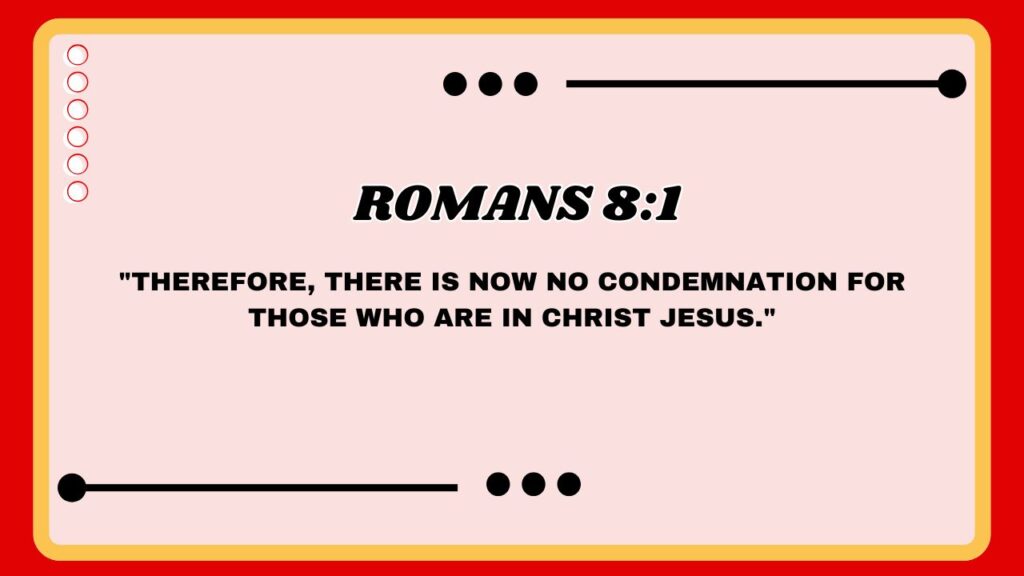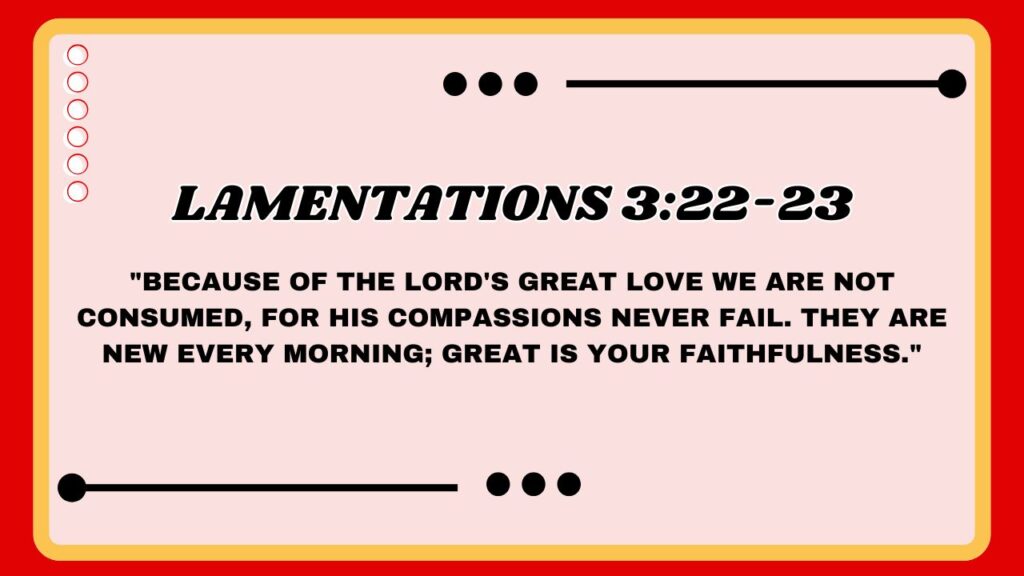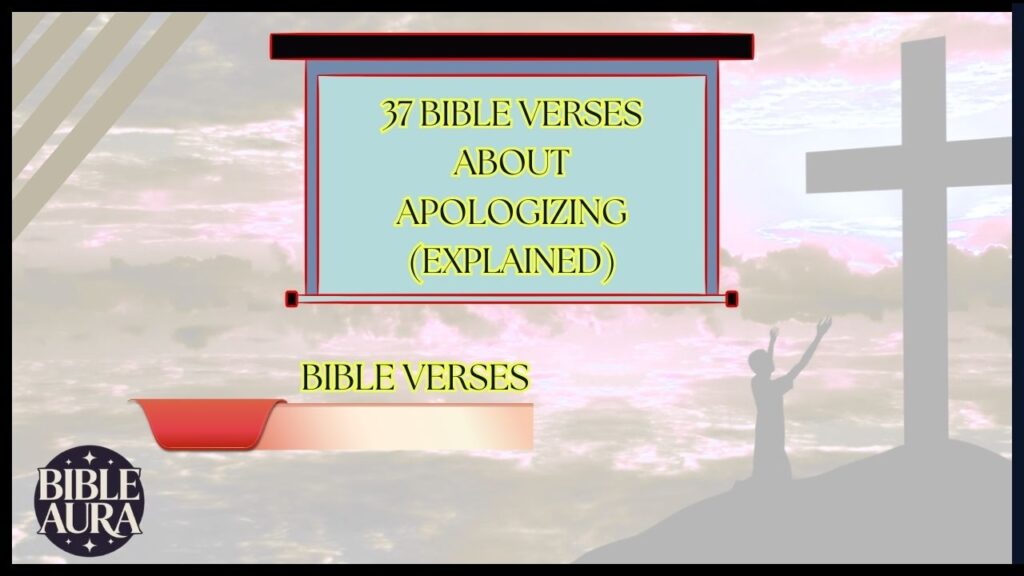Bible Verses About Apologizing : Have you ever found yourself struggling to find the right words when you know you’ve hurt someone?
Or perhaps you’re carrying the weight of guilt, unsure how to make things right with God or others? You’re not alone in this struggle.
Apologizing is one of the most challenging yet transformative acts we can perform as Christians, and the Bible offers profound wisdom on this essential aspect of our spiritual journey.
The Scriptures teach us that genuine repentance and confession of sins are not signs of weakness, but rather demonstrations of humility and spiritual maturity.
Through biblical guidance on repentance, we discover that God’s mercy is always available to those who approach Him with a contrite heart.
The importance of humility in apologizing cannot be overstated it opens the door to forgiveness, healing, and restoration of relationships.
Whether you’re seeking God’s forgiveness for your own shortcomings or learning how to extend grace to others, these carefully selected Bible verses about apologizing will guide you toward reconciliation and peace.
Let’s explore what Scripture reveals about the beautiful process of making things right.
Bible Verses About Apologizing
Confession and Repentance (Verses 1-8)
1. 📖 1 John 1:9
“If we confess our sins, he is faithful and just and will forgive us our sins and purify us from all unrighteousness.”
🔍 Meaning: When we honestly admit our wrongdoings to God, He promises to forgive and cleanse us completely.
💡 Application: Start each day with honest confession, knowing God’s mercy is new every morning.
2. 📖 Psalm 32:5
“Then I acknowledged my sin to you and did not cover up my iniquity. I said, ‘I will confess my transgressions to the Lord.’ And you forgave the guilt of my sin.”

🔍 Meaning: David experienced the relief that comes from no longer hiding his sins but bringing them openly to God.
💡 Application: Stop carrying the burden of hidden guilt bring your failures directly to God in prayer.
3. 📖 2 Chronicles 7:14
“If my people, who are called by my name, will humble themselves and pray and seek my face and turn from their wicked ways, then I will hear from heaven, and I will forgive their sin and will heal their land.”
🔍 Meaning: True repentance involves humility, prayer, seeking God, and turning away from sin leading to divine healing.
💡 Application: Make repentance a complete lifestyle change, not just words of regret.
4. 📖 Proverbs 28:13
“Whoever conceals their sins does not prosper, but the one who confesses and renounces them finds mercy.”
🔍 Meaning: Hiding our sins blocks our spiritual progress, while confession and abandonment of sin opens the door to God’s mercy.
💡 Application: Don’t let pride keep you from the mercy that awaits your honest confession.
5. 📖 Acts 3:19
“Repent, then, and turn to God, so that your sins may be wiped out, that times of refreshing may come from the Lord.”
🔍 Meaning: Repentance brings complete cleansing and spiritual renewal from God.
💡 Application: View repentance as a pathway to refreshing your relationship with God.
6. 📖 Joel 2:12-13
“‘Even now,’ declares the Lord, ‘return to me with all your heart, with fasting and weeping and mourning. Rend your heart and not your garments. Return to the Lord your God, for he is gracious and compassionate, slow to anger and abounding in love, and he relents from sending calamity.'”
🔍 Meaning: God calls for sincere, heartfelt repentance, and His character guarantees compassionate response.
💡 Application: Approach God with genuine sorrow for sin, trusting in His loving nature.
7. 📖 2 Corinthians 7:10
“Godly sorrow brings repentance that leads to salvation and leaves no regret, but worldly sorrow brings death.”
🔍 Meaning: True godly sorrow for sin produces life-changing repentance, unlike mere regret over consequences.
💡 Application: Examine your heart to ensure your sorrow leads to real change, not just regret.
8. 📖 Isaiah 55:7
“Let the wicked forsake their ways and the unrighteous their thoughts. Let them turn to the Lord, and he will have mercy on them, and to our God, for he will freely pardon.”

🔍 Meaning: God’s forgiveness is freely available to anyone willing to abandon their sinful ways and thoughts.
💡 Application: Don’t let past failures define you God offers fresh starts to all who truly repent.
Seeking Forgiveness from Others (Verses 9-16)
9. 📖 Matthew 5:23-24
“Therefore, if you are offering your gift at the altar and there remember that your brother or sister has something against you, leave your gift there in front of the altar. First go and be reconciled to them; then come and offer your gift.”
🔍 Meaning: Jesus Christ teaches that restoring relationships with others must come before worship.
💡 Application: Prioritize making amends with people you’ve wronged before focusing on religious activities.
10. 📖 Luke 17:3-4
“So watch yourselves. If your brother or sister sins against you, rebuke them; and if they repent, forgive them. Even if they sin against you seven times in a day and seven times come back to you saying ‘I repent,’ you must forgive them.”
🔍 Meaning: Genuine repentance should always be met with forgiveness, no matter how many times it’s needed.
💡 Application: Practice unlimited forgiveness when others genuinely seek to make amends.
11. 📖 James 5:16
“Therefore confess your sins to each other and pray for each other so that you may be healed. The prayer of a righteous person is powerful and effective.”
🔍 Meaning: Confessing sins to fellow believers brings healing and strengthens the power of prayer in community.
💡 Application: Find trusted Christian friends with whom you can share struggles and seek prayer support.
12. 📖 Galatians 6:1
“Brothers and sisters, if someone is caught in a sin, you who live by the Spirit should restore that person gently. But watch yourselves, or you also may be tempted.”
🔍 Meaning: When others fail, our role is gentle restoration, not harsh judgment, while guarding our own hearts.
💡 Application: Approach others’ failures with humility and compassion, remembering your own vulnerabilities.
13. 📖 Matthew 18:15
“If your brother or sister sins, go and point out their fault, just between the two of you. If they listen to you, you have won them over.”
🔍 Meaning: Jesus provides a loving framework for addressing wrongs starting with private, gentle confrontation.
💡 Application: When someone hurts you, speak to them directly first rather than involving others.
14. 📖 Ephesians 4:32
“Be kind and compassionate to one another, forgiving each other, just as in Christ God forgave you.”
🔍 Meaning: Our forgiveness of others should mirror the grace God has shown us through Christ.
💡 Application: Remember God’s immense forgiveness toward you when someone seeks your forgiveness.
15. 📖 Colossians 3:13
“Bear with each other and forgive one another if any of you has a grievance against someone. Forgive as the Lord forgave you.”

🔍 Meaning: Forgiving others is not optional for Christians it’s a command modeled after God’s forgiveness.
💡 Application: Make forgiveness your default response, just as God has made it His toward you.
16. 📖 1 Peter 4:8
“Above all, love each other deeply, because love covers over a multitude of sins.”
🔍 Meaning: Deep love for others creates an atmosphere where forgiveness and grace naturally flourish.
💡 Application: Choose to love deeply, allowing that love to overlook minor offenses and extend grace.
Also Read: 39 Important Bible Verses About Betrayal
Making Restitution and Amends (Verses 17-24)
17. 📖 Luke 19:8
“But Zacchaeus stood up and said to the Lord, ‘Look, Lord! Here and now I give half of my possessions to the poor, and if I have cheated anybody out of anything, I will pay back four times the amount.'”
🔍 Meaning: Zacchaeus demonstrated genuine repentance through concrete actions of restitution and generosity.
💡 Application: Back up your apologies with tangible actions that demonstrate real change.
18. 📖 Exodus 22:3
“But if the thief is found, he must pay back double.”
🔍 Meaning: The Old Testament established principles of making restitution that go beyond simple apology.
💡 Application: When possible, go above and beyond in making amends for the harm you’ve caused.
19. 📖 Numbers 5:7
“and must confess the sin they have committed. They must make full restitution for the wrong they have done, add a fifth of the value to it and give it all to the person they have wronged.”
🔍 Meaning: True repentance in Scripture often included confession plus making restitution with additional compensation.
💡 Application: Don’t stop at saying sorry actively work to repair the damage you’ve caused.
20. 📖 Philemon 1:18-19
“If he has done you any wrong or owes you anything, charge it to me. I, Paul, am writing this with my own hand. I will pay it back not to mention that you owe me your very self.”
🔍 Meaning: Paul the Apostle offered to personally pay for Onesimus’s wrongs, modeling sacrificial reconciliation.
💡 Application: Sometimes true reconciliation requires costly sacrifice and personal investment.
21. 📖 Luke 15:18-19
“I will set out and go back to my father and say to him: Father, I have sinned against heaven and against you. I am no longer worthy to be called your son; make me like one of your hired servants.”
🔍 Meaning: The Prodigal Son planned a humble confession that acknowledged his unworthiness and willingness to accept consequences.
💡 Application: Approach those you’ve wronged with genuine humility, not expecting to return to your former position.
22. 📖 Leviticus 6:4-5
“when they sin in any of these ways and realize their guilt, they must return what they have stolen or taken by extortion, or what was entrusted to them, or the lost property they found, or whatever it was they swore falsely about. They must make restitution in full, add a fifth of the value to it and give it all to the owner on the day they present their guilt offering.”
🔍 Meaning: Biblical restitution involved returning what was taken plus additional compensation as evidence of sincere repentance.
💡 Application: When you’ve taken something (materially or emotionally), work to restore more than you took.
23. 📖 2 Samuel 12:13
“Then David said to Nathan, ‘I have sinned against the Lord.’ Nathan replied, ‘The Lord has taken away your sin. You are not going to die.'”

🔍 Meaning: David’s immediate admission of wrongdoing brought instant divine forgiveness, though consequences remained.
💡 Application: Don’t delay or make excuses when confronted with your sin immediate confession brings immediate mercy.
24. 📖 Nehemiah 9:2
“Those of Israelite descent had separated themselves from all foreigners. They stood in their places and confessed their sins and the sins of their ancestors.”
🔍 Meaning: Israel recognized that true repentance sometimes means acknowledging and addressing generational patterns of sin.
💡 Application: Consider how family or cultural patterns might need acknowledgment and change in your life.
Also Read: 34 Bible Verses About Birds Praising God (Explained)
God’s Response to Genuine Apology (Verses 25-32)
25. 📖 Psalm 103:12
“as far as the east is from the west, so far has he removed our transgressions from us.”
🔍 Meaning: God’s forgiveness is complete and infinite our sins are removed beyond any possibility of return.
💡 Application: Accept the completeness of God’s forgiveness and stop revisiting what He has forgotten.
26. 📖 Isaiah 1:18
“‘Come now, let us settle the matter,’ says the Lord. ‘Though your sins are like scarlet, they shall be as white as snow; though they are red as crimson, they shall be like wool.'”
🔍 Meaning: God invites dialogue about our sins and promises complete cleansing no matter how stained we feel.
💡 Application: Bring your worst sins to God knowing He specializes in making things clean and new.
27. 📖 Micah 7:19
“You will again have compassion on us; you will tread our sins underfoot and hurl all our iniquities into the depths of the sea.”
🔍 Meaning: God doesn’t just forgive our sins He destroys them completely, casting them where they cannot be retrieved.
💡 Application: Trust that God’s compassion has permanently disposed of your confessed sins.
28. 📖 Psalm 86:5
“You, Lord, are forgiving and good, abounding in love to all who call on you.”
🔍 Meaning: Forgiveness is part of God’s essential nature He delights to show mercy to all who seek Him.
💡 Application: Approach God confidently, knowing that forgiveness flows from His loving character.
29. 📖 1 John 2:1-2
“My dear children, I write this to you so that you will not sin. But if anybody does sin, we have an advocate with the Father Jesus Christ, the Righteous One. He is the atoning sacrifice for our sins, and not only for ours but also for the sins of the whole world.”
🔍 Meaning: Jesus Christ serves as our advocate before God, having already paid the price for our forgiveness.
💡 Application: When guilt overwhelms you, remember that Christ is actively defending you before the Father.
30. 📖 Romans 8:1
“Therefore, there is now no condemnation for those who are in Christ Jesus.”

🔍 Meaning: Believers in Jesus live free from God’s condemnation because Christ has borne it for them.
💡 Application: Reject condemnation from yourself or others you stand uncondemned before God.
31. 📖 Hebrews 8:12
“For I will forgive their wickedness and will remember their sins no more.”
🔍 Meaning: God’s New Testament promise includes not just forgiveness but divine forgetfulness of our sins.
💡 Application: If God chooses to forget your sins, you can choose to stop remembering them too.
32. 📖 Psalm 130:4
“But with you there is forgiveness, so that we can, with reverence, serve you.”
🔍 Meaning: God’s forgiveness isn’t just about removing guilt it restores us to meaningful service and relationship.
💡 Application: Let God’s forgiveness motivate renewed devotion and service, not presumption.
Also Read: 45 Bible Verses About Exposing Your Body (Explained)
Self-Forgiveness and Moving Forward (Verses 33-37)
33. 📖 Philippians 3:13-14
“Brothers and sisters, I do not consider myself yet to have taken hold of it. But one thing I do: Forgetting what is behind and straining toward what is ahead, I press on toward the goal to win the prize for which God has called me heavenward in Christ Jesus.”
🔍 Meaning: Paul demonstrates self-forgiveness by choosing to focus on God’s future purposes rather than past failures.
💡 Application: Make a conscious choice daily to focus on God’s calling forward rather than past mistakes.
34. 📖 Romans 8:28
“And we know that in all things God works for the good of those who love him, who have been called according to his purpose.”
🔍 Meaning: God can transform even our failures and sins into something beneficial for those who love Him. 💡 Application: Trust that God can use your past mistakes as part of His good plan for your life.
35. 📖 2 Corinthians 5:17
“Therefore, if anyone is in Christ, the new creation has come: The old has gone, the new is here!”
🔍 Meaning: In Christ, we become completely new people our old sinful identity is replaced with a new one.
💡 Application: Live according to your new identity in Christ rather than your past patterns of failure.
36. 📖 Isaiah 43:18-19
“Forget the former things; do not dwell on the past. See, I am doing a new thing! Now it springs up; do you not perceive it? I am making a way in the wilderness and streams in the wasteland.”
🔍 Meaning: God calls us to stop dwelling on past failures because He is actively creating new possibilities.
💡 Application: Look expectantly for the new things God is doing in your life instead of fixating on old mistakes.
37. 📖 Lamentations 3:22-23
“Because of the Lord’s great love we are not consumed, for his compassions never fail. They are new every morning; great is your faithfulness.”

🔍 Meaning: God’s mercy is renewable daily every morning brings fresh compassion and opportunities for grace.
💡 Application: Start each day expecting fresh mercy from God, leaving yesterday’s guilt behind.
Also Read: 38 Bible Verses About Favor (Explained)
How to Apply These Verses in Real Life
Scripture memorization can transform your approach to apologizing. Choose one or two verses that particularly resonate with your situation and commit them to memory. When facing difficult conversations, these Bible verses will provide both courage and guidance.
Prayer before seeking forgiveness prepares your heart and aligns your motives with God’s will. Ask God for humility, the right words, and a genuinely repentant spirit before approaching those you’ve wronged.
Journaling about your experiences with forgiveness and repentance can help you process spiritual growth and recognize patterns in your relationships. Write about both times you’ve needed forgiveness and times you’ve granted it.
Create accountability relationships with fellow believers who can help you practice biblical guidance on repentance. Having trusted friends who can speak truth in love makes the process of apologizing less intimidating.
Practice self-forgiveness by regularly reminding yourself of God’s complete acceptance. When guilt tries to resurface, return to these verses and speak them over yourself until they become your emotional reality.
Final Encouragement and Devotional Closing
The journey of apologizing and seeking forgiveness is never easy, but it’s one of the most beautiful aspects of our Christian faith. Through Scripture, we see that God not only forgives but transforms our failures into testimonies of His grace. Every genuine apology becomes an opportunity to reflect Christ’s love and experience deeper healing in our relationships.
Remember that God’s mercy is not just about past failures it’s about future possibilities. When you step into the vulnerability of apologizing, you’re participating in the very heart of the Gospel message. Jesus Christ made the ultimate apology for humanity’s sins, and through His example, we learn that true strength is found in humility and repentance. Let these Bible verses about apologizing be your guide as you walk in the freedom that comes from restored relationships and the peace that passes all understanding.
FAQs
How does the Bible teach us to apologize effectively?
The Bible teaches that effective apologizing involves genuine confession of sins, taking responsibility without making excuses, and when possible, making restitution. Scripture emphasizes humility, sincerity, and a commitment to turning away from sin as essential components of biblical apology.
What’s the difference between worldly sorrow and godly sorrow in apologizing?
Godly sorrow leads to genuine repentance and life change, while worldly sorrow is primarily focused on avoiding consequences. 2 Corinthians 7:10 explains that godly sorrow produces lasting transformation, whereas worldly sorrow often leads to repeated patterns of sin without real change.
Is it necessary to apologize to God even if I’ve already asked for forgiveness?
While God forgives completely the first time we genuinely repent, ongoing confession and humility are part of healthy spiritual growth. 1 John 1:9 suggests that confessing sins is an ongoing practice that keeps our relationship with God clear and our hearts sensitive to His leading.
How can I forgive myself when I feel overwhelming guilt despite God’s forgiveness?
Self-forgiveness comes through accepting God’s complete forgiveness as truth rather than feeling. Focus on verses like Romans 8:1 and Psalm 103:12 that declare your standing before God. Remember that refusing to forgive yourself can actually dishonor God’s grace and keep you from the healing He offers.
Read more knowledgeable blogs on Bible Aura

Piper McMillan is a passionate writer and educator dedicated to sharing the beauty and depth of the Bible. As the author behind the Piper McMillan website, she explores Bible verses, unlocks biblical narratives, and provides insights for living a Christ-centered life. Through warm, approachable, and inspiring articles, Piper guides readers to deepen their understanding of Scripture and apply its timeless wisdom to daily living. Her mission is to uplift, educate, and help others walk faithfully with God, rooted in His word.



